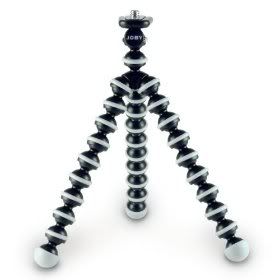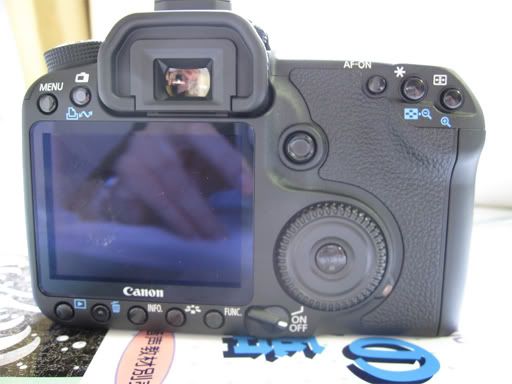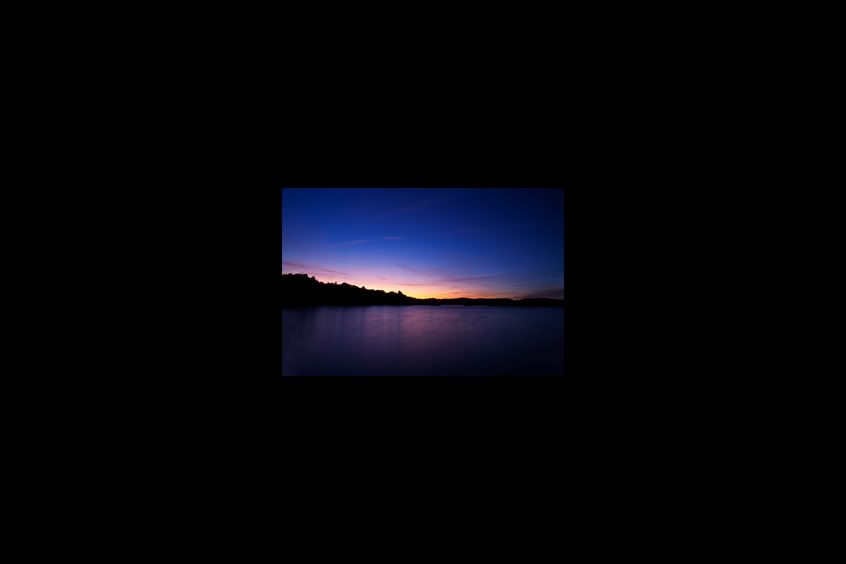1) The camera is not a dirty dishrag. You don't need to hold it arms length away from you. This is not a middle school dance with your camera as your date. I had someone once come to me complaining that they just couldn't get the same sharp images with their point and shot that I was getting with my DSLR. I had them take a few photos so I could see how they went about it, and I found they were holding the camera way out in front of them. Now part of this I think is because of the design of a lot of new digital cameras that have live LCD viwers on the back instead of optical view finders (i.e. looking through an actual hole in the camera like you had to before digital came along). But I would highly, HIGHLY suggest to hold tight onto the camera. Place your feet shoulders width apart and hug the camera as tight to your chest as you can to take as steady a shot as you can. Another option to increase stability are mini tripods - Gorilla Pods are one brand I know of that are for use with light weight P&S camera's, the idea behind them being that the legs can wrap around surfaces like fences or trees to open up more photo possibility without needing a full size tripod.
Other variations I see on this are people standing holding the camera with just one hand... use both to be more stable.

For the record I have not used one of these, but I would NOT recommend using it with anything heavier than a point and shoot.
2) Forgo flash, embrace natural light. Today I went to a beautiful park, Fort Williams, and saw a young woman with an entry level DSLR taking photos of the lovely beach scene in front of us. Nothing wrong with that... till I noticed that her on-camera flash was popped up and firing. There are some instances where flash is inevitable, but don't waste your batteries using the flash on landscapes. You should also turn it off if you are in a large auditorium and far away from the stage, because the light simply won't travel far enough to illuminate what you want; in fact the flash firing can trick your camera into using a FASTER shutter speed which in turn may make your image darker than you wanted. You'll also find your photos to be more pleasing to the eye when they are using ambient (natural/available) light versus the camera's flash.
3) Auto Mode. If you have a DSLR there is zero excuse to shoot in auto mode unless you are shooting something like sports and you haven't had a lot of experience and NEED to nail the shots. But if you can control your shutter speed, aperture and ISO - do it. This might be the biggest issue I see with photographers images... a simple lack of control. I was intimidated for a long time with the controls of my camera till I really forced myself to learn them, and now I can't imagine shooting in Auto Mode. camerapedia.org is a great resource for information on cameras, including explanations of shutter speed, aperture and ISO. I would be unable to shoot the majority of images that I now shoot if I were still using Auto settings.

Photograph from CLF on flickr creative commons
4) Distracting your viewer with large watermarks or borders. There are some photos that look great with a border and some watermarks that are artistic and lovely. But I see so many photos overtaken with giant, thick black borders that just aren't necessary and really detract from the image as a whole. In a real life situation I love seeing photos with matted borders, but online where images are already getting squished small enough to fit my screen comfortably, I don't want to see them made even smaller because a border is taking up 1/3 of the area.

But really if there is one thing to do, get off auto mode. You'll be amazed at the results!
Next up I'm hoping to do a side-by-side comparison of aperture settings to better demonstrate what the heck they are. I figure I yell enough about setting everything manually I might as well explain the settings a bit more ;)


5 comments:
I really don't understand why DSLR's have live previews. I mean, I can understand point-and-shoots the size of your credit card since you would look like a complete idiot with that held up to your face, but DSLRs?
Good point on the border. Sometimes they just overpower the image unnecessarily.
I'm more referring to the point and shoots, I don't know any DSLR's with live preview. And with the P&S's I understand needing to see the screen since they lack an optical viewfinder, but it's counterproductive to hold it at arms length like a tarantula.
And yeah... I hate borders unless they're oh physical photos in the form of mat board.
There is a whole new group of DSLR products with Live View. D5000 and better. Canon T1i and better. Olympus, Panasonic, Sony... They all have incorporated live view into the units with D-video capability and some others.
All good points you have made.
Hey, Your atricle is real helpful to the beginner who doesn't know squat. While I'm not a violator of 1(I knew already that you have to use the camera instead of watch it work), 2(I hate flash), or 4(I tend to not touch my photos after loading them) - I am a violator of 3 (partly)because I don't know that much about photography. I have a Nikon Coolpix P80 and it's versitile, and sometime stubborn, but I like it... I'd just like to learn it better now that I'm back from 12 hr shifts and actually have time to learn. Do you have/know of any resources that could help me learn basic photography better? All I have is this book: The Betterphoto Guide to Digital Photography.
@Foulke:
A solid resource for beginners : http://digital-photography-school.com .
Not only does this place have tons of articles to read through for beginners, but there is a forum you can join where knowledgeable photo pros and seasoned hobbyists will answer your questions.
There is also a "Critique My Shot" part of the forum where you can upload your images and people will write up crits for you (usually). It's free though so there's no guarantee, but you usually get some positive feedback.
Post a Comment